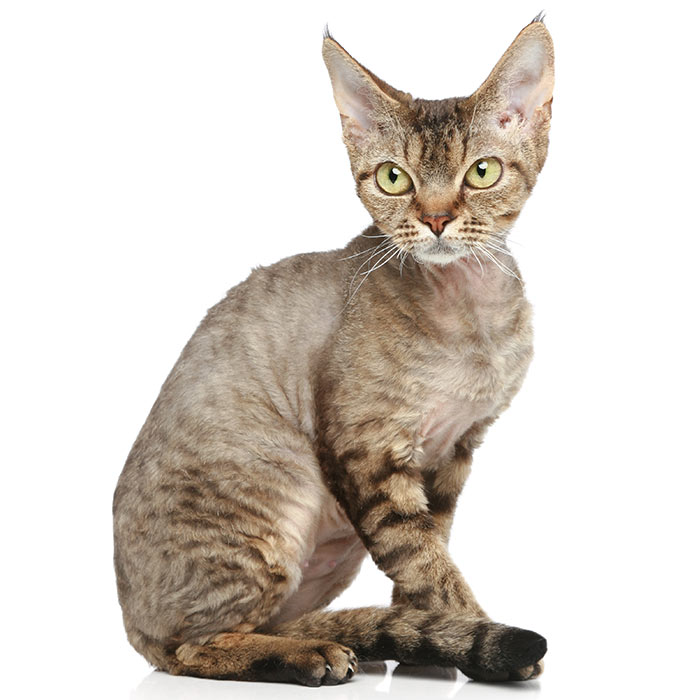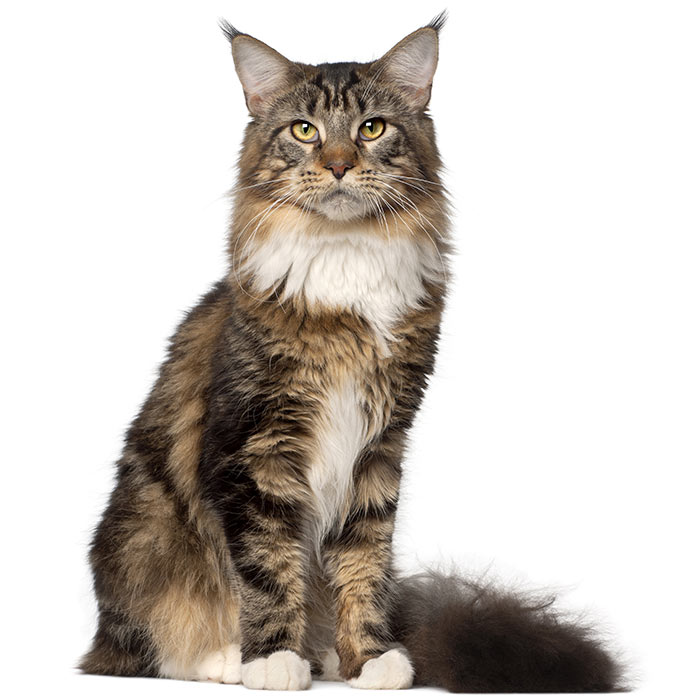Siberian
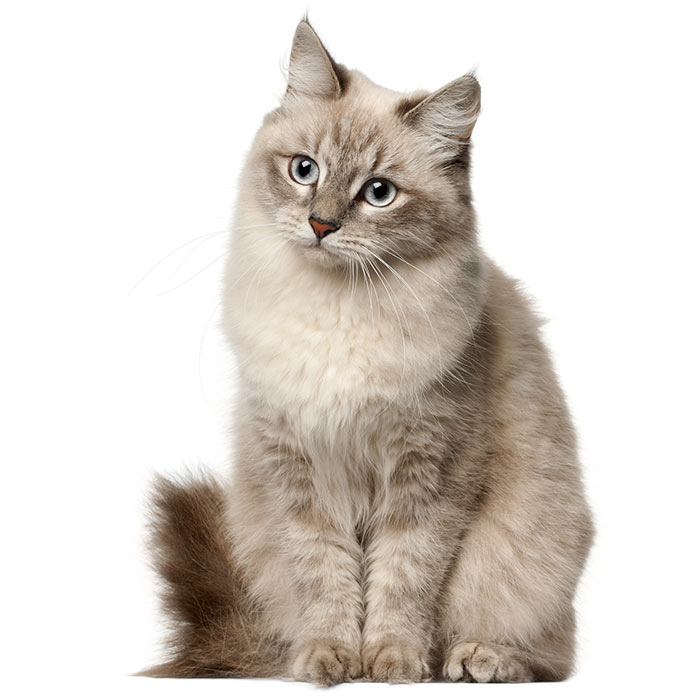
Siberians are large, solid cats that take up to five years to reach their full size. Their eyes are green or green-gold in colour. They have a triple coat that is made up of a soft undercoat and an outer-coat with shiny, waterproof hairs on top. This striking coat comes in a wide variety of colours, including colour point, cream, gold, silver, brown, red and blue.
The Siberian’s beautiful, lush coat continues to develop – when they’re about one year old the hairs around their neck grow in, creating the appearance of a lion’s mane. They also grow tufts of hair between the pads on their paws and from their ears. The coat continues to change over time and its colours tend to fade as the cat ages.
Siberian cats shed their heavy coat during seasonal changes and they will benefit from regular grooming to keep their coat from becoming matted.
Siberian cats weigh between 6.8-9.1 kg for the males and 4.5-6.8 kg for females. The average lifespan of a Siberian cat is 10 to 18 years.
Insuring a Siberian?
Get award-winning cover with more benefits and up to 80% of eligible vet bills reimbursed. Find out about your cover options.
Get a quick quote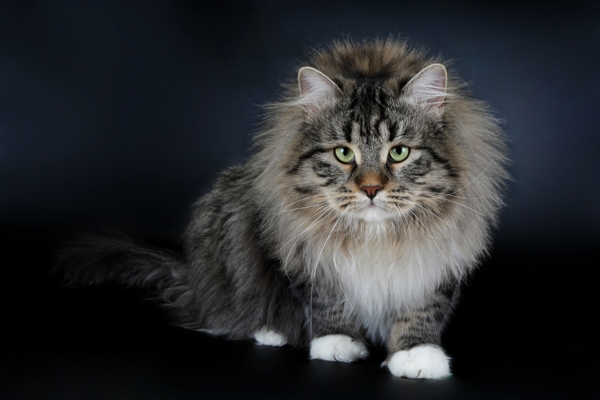
Personality and Temperament
This is a breed with a strong personality; in fact, Siberians are often described as having a dog-like personality. They are affectionate and loyal and they demand their owner’s attention – it’s not uncommon for these cats to follow their owners from room to room.
Siberians are also very comfortable with dogs and children. While a lot of other cats aren’t recommended for households with very young children, the Siberian actually thrives on the company of people of all ages. They are easy going cats who are just as happy snuggling up on your lap as they are playing fetch or other games – like those that involve hiding food!
They are not cats to be left alone all day as they really enjoy company, so having two cats rather than one is recommended.
Common Siberian Diseases & Conditions
Symptoms, diagnosis and treatment
- Feline Cardiomyopathy is a disease of the heart muscle that involves the abnormal thickening of parts of the heart muscle. A genetic predisposition is suspected, and middle aged (5 to 7 years) male cats are typically affected. This condition can lead to congestive heart failure, clot formation and even sudden death in severely affected cats.
- Feline lower urinary tract disease (FLUTD) is a group of diseases that affect the bladder and urethra of cats. Cats with FLUTD present with pain and have difficulty urinating, they urinate more often and blood may be visible in the urine. FLUTD is the most common lower urinary tract disorder of domestic cats, The most common patient with FLUTD is a young adult, neutered male indoor cat, but any cat can be affected.
- Furballs, also known as trichobezoars or hairballs, are long, cylindrical masses of hair that form in the stomach that cats may vomit up. They are caused by the cat ingesting fur when grooming. It is normal for cats to vomit up the occasional furball, particularly longer haired cats. However, if it happens frequently, or suddenly starts to occur in an older cat, it may be a sign of a more serious problem.
Not all conditions are covered by Pet Insurance. For details of Bow Wow Meow Pet Insurance cover, refer to the Product Disclosure Statement.
What do Siberian owners claim for the most?
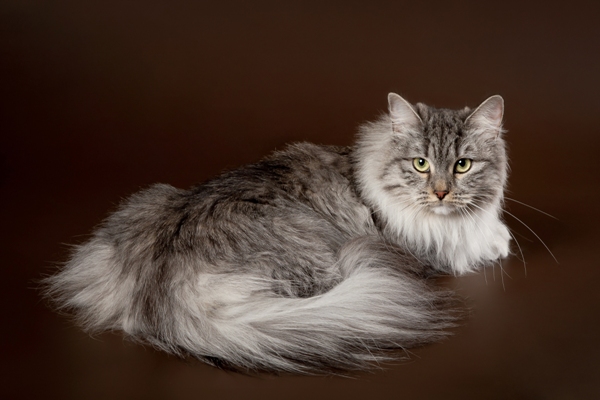
History
There are a number of theories about the history of the Siberian cat – one relates to their usefulness as mouse catchers on the streets and farms of Russia hundreds of years ago. In fact, Siberians are a Russian national treasure; they have been documented in Russia for hundreds of years and are mentioned in Russian fairy tales and children’s books.
Siberians are a natural breed and reflect the climate in which they developed. However, the breed was ultimately developed to meet the standards of breeders and judges. During the 1980’s, the breed featured in cat shows in Russia, which led to its standardisation so that it would be distinguishable from other large, fluffy, longhaired Russian breeds. OlgoMironva, President of the Kotofi Club developed the breeds’ description and a white Siberian stud called Roman and brown tabby named Mars were used to develop the standard.
When the Cold War between the Soviet Union and the United States ended, the doors opened for the Siberian cat to be exported worldwide. The first Siberians arrived in the United States in June 1990.The World Cat Federation was the first international organisation to accept the Siberian Cat, which was nicknamed the Neva Masquerade.
Siberians started appearing in Australia in 2003, when they were introduced from the United States.
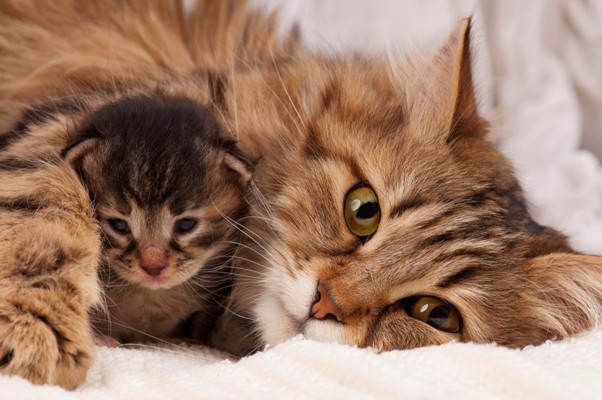
Siberian Facts!
- The Siberian Cat has a long Russian history and often featured in fairy tales, children’s books and novels.
- The breed appears in Harrison Wier’s book Our Cats and All About Them, published in 1889.
- These cats have played a practical role on farms as rodent control.
- Siberian cats are quiet yet very vocal, expressing themselves through mews, trills, chirps, and lots of purring, so be prepared to have a lot of conversations with your Siberian.
- Their eyes vary in colour from gold to green and all shades in-between. Some have two different coloured eyes, and some even have blue eyes.
- Siberians like to play in water and if they are bathed regularly as kittens, they may continue to enjoy having a bath.
Read all you need to know about insuring a Siberian
Learn moreFree engraved pet ID tag on sign up3
Customer Satisfaction
21 day cooling off
Easy to use Pet Portal

GapOnly® in vet claims
MORE INFORMATION
NSW Cat Fanciers Association: http://www.nswcfa.asn.au/
Siberian Cat Breeders Australia: http://www.catsofaustralia.com/siberian_breeders.htm

